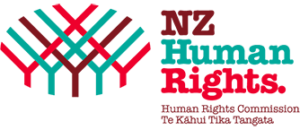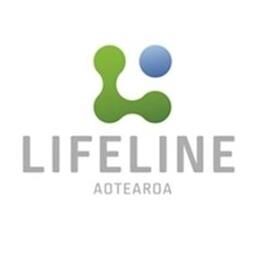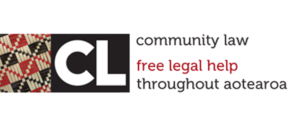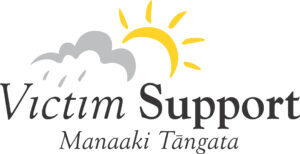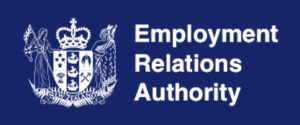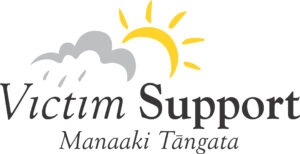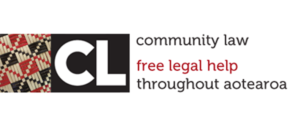OUR SERVICES
#MeToo NZ can be your first port of call if you think you are being sexually harassed in your workplace. The first step to address sexual harassment in the workplace is to seek employment advice. It is also very important to seek personal support. Below are listed further support services who can help and whose websites and support staff can provide further assistance and information.
If you feel you are unable or too scared to get in touch with these services, we can do this for you. We can advocate on your behalf if you request this and will get in touch with the below listed further support services to get you further help.
Our services are free of charge.
Listen: We are here to listen to your situation confidentially. If you think you are being sexually harassed in your workplace do not hesitate to call us.
Advise: We are here to advise your options to disclose and stop the harassment. These options include the following;*See below disclosure options.
Advocate: We are here to advocate on your behalf to put you in touch with your chosen further support services. If you do not feel that you can do this yourself we offer this advocate service free of charge.
Disclosure options include the following;
Disclosure within the workplace:
You should try to raise the disclosure with your employer first where ever possible, to enable your employer to respond correctly to the situation.
1. Personal Grievance:
You could raise a personal grievance under the Employment Relations Act 2000 with your employer first. As the Employment Relations Act is only relevant for employer/employee relationship problems, independent contractors should direct their complaints to the Human Rights Commission.
Check if your company has an Employee Assistance Programs (EAP). You can utilise this service for confidential assistance and support. https://www.eapservices.co.nz/
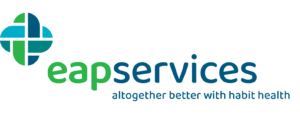
When filling a Personal Grievance with your company your company's human resources team must act according and legally to acknowledge the complaint. Your company must investigate the Personal Grievance fully. Click here to view New Zealand legislation from Parliamentary Counsel Office.
How to report sexual harassment to your company
To report the sexual harassment, workers can make a written or verbal report. The company must look into all reports. Be aware that there may be some retaliation from the company or company employees if you choose to raise a work place sexual harassment personal grievance. It is important to seek legal guidance, advise and representation if you do.
• Written reports: The company should provide a report form on their internal website. Follow the instructions on the form and give to the company’s representative HR person named on the form.
• Verbal reports: Workers can report sexual harassment to one of the company’s sexual harassment contact people , their manager or the company’s HR manager.
Click to view the list of potential retaliation scenarios
Disclosure company and co – worker retaliation – possible scenarios
What often stops disclosure of workplace sexual harassment is the fear of retaliation, from the company management, legal team and work colleagues.
Below are listed some possible potential scenarios that may occur if you choose to disclose the abuse, either to a work colleague or manager or company HR representative. It is important to seek legal advice, support and representation if you choose to disclose the abuse.
Company and co – worker retaliation possible scenarios;
If the perpetrator of the workplace sexual harassment is your manager, the company may choose to take his, or her side, as companies often choose to keep the employee that produces the most profit for the company. They may choose not to believe you. In this case the company can use various tactics to intimidate you.
The company may want to protect itself if they have not implemented proper policies and processes to educate and stop sexual harassment in their workplace. Co – workers may choose to not believe you, as they have not witnessed the abuse and have a good co-worker relationship with the perpetrator. Co– workers may also choose not to believe you or may choose not to support you for fear of jeopardizing their own jobs. Co- workers may also not choose to support you due to competition for positions within the company, for their own job gain advantage.
If the perpetrator of the workplace sexual harassment is your co -worker the company and your co – workers may in this case also choose to not believe you. Companies often choose to keep the employee that produces the most profit for the company. The company may want to protect itself if they have not implemented proper policies and processes to educate and stop sexual harassment in their workplace. Co – workers may choose to not believe you, as they have not witnessed the abuse and have a good co-worker relationship with the perpetrator. In both Company and employee retaliation cases the various retaliation scenarios may be as listed below;
- Try to make you feel like you are making a big deal out of nothing.
- Try to make you feel inferior.
- Try to make you feel afraid and powerless.
- Try to isolate you.
- Try to turn your work colleagues against you.
- Try to humiliate you.
- Try to imply that you are weak and you “need to toughen up”.
- Try to blame you for causing the abuse.
- Try to minimize the perpetrator’s abusive behavior.
- Try to imply that you are not mentally unstable and “sick” and thus imagined or exaggerated the abuse.
- Try to imply that the perpetrator’s behavior was due to that fact that he, or she “was in love”, or that you were the one “in love.”
- Try to imply that you just didn’t “fit into the team” and you were “not a team player”, “you were boring” or a bad fit for the team “all it takes is one bad apple.”
- Try to imply that your work for the company was sub – standard. It is important to keep copies of your manager’s performance reviews, so you can discredit this if it has not been noted in previous performance reviews.
- The company may impede the performance of your work computer, to disable your work performance.
- The company may slow your work stream jobs to make it look as if you haven’t got any work to do, thus are not a required member for the team.
- The company may delete important documentation saved on your work computer. It is important that you save and print off all of your performance reviews or any documentation pertaining to your case.
- If you have disclosed the abuse you should not have to come in to work that day, nor the following day. Your union representative, legal representative or company HR manager should advise you to stay home until further notice of the correct following procedures.
- If you have chosen to disclose the abuse you should not be asked “What would you like done about this – would you like the perpetrator fired or would you like the perpetrator to receive a warning? ” This should not be your responsibility, you will not be thinking clearly and will be stressed. The onus for what should be done about the abuse should follow on from the investigation and should sit with the legal teams involved.
- The company may use an HR mediator company employee to investigate your case and interview all of the co -workers and management involved. This is a conflict of interests, due to the fact that the HR representative is on the companie's pay-role, so will have a vested interest in protecting the company. An impartial third party representative should be employed to perform the investigation.
- The company may submit a findings report to you following their investigation, which may include un- truths from the co – workers and managers interviewed. You have the right to reply to this, if you are not given the opportunity to reply, this represents further intimidation tactics by the company.
- You have the right to mediation, to try to mediate for a solution to the sexual harassment to enable you to remain in your employment if you so wish to. If you are not given this right to mediate, proper process has not been followed.
- If a settlement has been agreed to, (if you decide you no longer wish to be employed by your company) a company reference should be included with your settlement to enable you to apply for further work opportunities. If a reference has not been supplied with your settlement, proper process has not been followed.
- If a settlement has been agreed upon the company must pay the agreed amount by the agreed date. The victim should not have to chase up for the payment, this is further intimidation by the company.
All the above scenarios are not an appropriate response to the workplace sexual harassment disclosure. The company and their legal team will be trying to protect their management team, as they understand that workplace sexual harassment is serious and will be trying to negate their own company’s blame. If the company has not had in place proper processes and procedures to educate and stop sexual harassment in their workplace and have not protected their staff they can be fined heavily.
If the correct response has not been implemented by the company and you experience retaliation you should document this, as this can be drawn on for further settlement evidence of mis- conduct and the case can be taken to the Employment Relations Authority . The Employment Relations Authority can resolve disputes about employment issues including sexual harassment if mediation has failed to resolve your complaint. The Employment Court deals with cases about employment disputes. The Employment Court also deals with challenges to Employment Relations Authority decisions.
It is important to seek legal advice, support and representation if you choose to disclose the abuse.
Disclosure community and future employment retaliation – possible scenarios
What often stops disclosure of workplace sexual harassment is the fear of retaliation, not only from the employee’s company and co -workers – but also from the community that the employee may live in. The perpetrator, co – workers or company management employees may live in the same community as the abused employee, which places the victim in a compromised and vulnerable position. The victim can be targeted for further retaliation abuse outside of the workplace experiencing further verbal “gaslighting”, in -validation and purposeful bullying and isolation.
This can also follow on into future employment, if employed within the same community area, or if the network within the victim’s particular genre of work have been told un – truths about the victim. The victim’s new employer can perpetrate abusive, in -validation, humiliation and defamatory comments about the victim to other staff members, the general public and members of the victim’s broader work community if the employer has been told mis -truths about the victim , or if the employer has chosen not to believe the victim’s claim of sexual harassment. The victim’s new employer can turn the victim’s work colleagues against them if in future employment within the same community or work genre. The victim’s new workplace employees and work colleagues can make jokes about the situation if they have heard rumors about the victim, as they may either not believe the victim or think what the victim went through is “funny”.
Sexual harassment in the workplace is not “funny” and it is not something that should be made fun of. The victims of sexual harassment should never be made fun of.
Below are listed some possible potential scenarios that may occur if you choose to disclose the abuse. It is important to consider the full consequences of disclosure and seek legal advice, support and representation if you choose to disclose the abuse. It is very important to have a strong personal support network around you, who will validate your disclosure actions and support you within your community.
Community and future work retaliation - possible scenarios;
If you live in the same community as your perpetrator, co – workers or company management employees, further abuse can ensue. Further abuse can also follow in future employment positions. The various retaliation scenarios may be as listed below;
- Sectors of the community can purposely isolate you by excluding you from social occasions or gatherings.
- If you do attend gatherings, you can be targeted with undermining comments, in -validation, intimidation, bullying abusive comments, “gaslighting” and humiliation.
- The school staff and parents of other childeren where your children attend can make humiliating and undermining comments about you in front of the other children, to further bully and isolate you.
- The shop staff where you shop can make humiliating comments about you whilst shopping in their premises.
- They can try to make you feel afraid and powerless and completely isolated.
- They can drug your drinks, kick you or try anything to make you look unstable and “unwell” or “slutty and flirty” if attending gatherings.
The below are possible examples of abusive invalidation and bullying “gaslighting” comments;
a/ “She loved him.”
b/ “She encouraged him.”
c/ “She’s flirty.”
d/ “She’s and slut.”
e/ “Let’s do her” and then laugh at you.
f/ “She’s boring”
g/ “She’s thick”
h/ “She’s dumb.”
i/ “She’s grumpy”
j/ “She needs to calm down”
k “She’s green”
l/ “Shes’ OTT”
m/ They can say “Metoo” and laugh.
n/ “She’s sick”
o/ “She’s schiz” (schizophrenic)
p/ “She’s moany”
q/ “She fits”…after being drugged at a party.
r/ They can body shame you and criticize your body and face in any way to make you feel ugly and inferior, suggesting that there was no way the perpetrator would be interested in you.
s/ “She’s plain”
t/ They can purposely constantly remind you of the sexual harassment, so that you are further abused every day and can not move on to a healthy state of mind. They can use comments like “Remind her” and “Everyday” and laugh.
u/ They can comment about the perpetrator’s wife, saying “She’s perfect “ , “She’s and 10” , “She’s beautiful”, “She won”, “ The perpetrator is lucky to have his wife.”
v/ They can say “The perpetrator won”
w/ They can purposely “gaslight” you in groups and laugh while looking at you.
x/ Your new employer can say to others “be nice” and then laugh at you together with the others.
y/ They can purposely try to in validate you with anything they can think of as a defense for the perpetrator.
All the above scenarios are purposeful bullying comments, aimed at further hurting and in - validating the victim. These are not appropriate community responses to workplace sexual harassment disclosure.
* Refer to our Blog Tab for the Women.govt.nz: Literature scan on workplace sexual harassment
• 26. Sexual harassment in the workplace does not occur in isolation. It is facilitated by communities and workplaces that tolerate such behaviour.
It is important to seek legal advice, support and representation if you choose to disclose the abuse.
It is very important to have strong personal support around you if you choose to disclose sexual harassment in the workplace.
Fingerprint for Success. A guide to workplace bullying in 2021 - an article with statistics makes this an interesting read.

Mediation: You may decide to seek external help if you’re not satisfied by the actions of your business, and have made reasonable efforts to try to resolve the issue using internal processes.
Make an application to the Employment New Zealand Mediation Services. This is a free service and offers mediation between yourself and your company to work out a solution to the sexual harassment claim. The mediator will assist the parties to identify solutions to the situation, so that behaviour can be identified and moderated which hopefully includes the employee retaining their employment within the company without any adverse effects. There can be a waiting list for this service, so prompt filing of the application is important. Note: For more information on the effective use of mediation go to;
https://www.employment.govt.nz/resolving-problems/steps-to-resolve/mediation/
Disclosure outside of your workplace:
If you do not feel that your employer has the correct health and safety protocols in place at work and has not informed your workplace about sexual harassment and what to do within the company if you have a concern – then you have the following options of legal protection to disclose outside of your workplace.

2. New Zealand Police:
If you feel that you are not safe disclosing the sexual harassment within your workplace, you can go to your nearest local police station and tell them that you are being sexually harassed at work. Sexual harassment is a crime and should not be tolerated in any workplace. The police will take your allegation seriously and investigate on your behalf, at no cost to the victim.
This will include the following;
• The police will take your statement
• They will get in touch with the HR department at your work
• They will investigate your allegation , interviewing the alleged perpetrator and any witnesses involved.
Find Police stations by map local Police station.
105 Police non - emergency number
If you need to talk to the New Zealand Police then you can call 105. The number is available from both mobile and landline phones. It’s a free nationwide service available day and night for New Zealanders and overseas visitors. Some private, corporate or government agencies have their own private telephone systems that may not have been changed to allow the number 105 to be dialled. If you experience this, please call 0800 105 105.
https://www.police.govt.nz/105info
https://www.police.govt.nz/105support Non emergency reporting
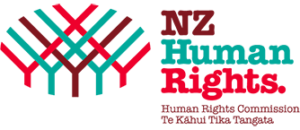
3. Human Rights Commission:
The Human Rights Commission can help resolve complaints of sexual harassment and other forms of unlawful discrimination at work, at school, by people providing public services and other areas. It provides a free confidential mediation process for complaints of sexual harassment. It can provide information to help you to resolve your complaint or you could be referred to a mediator. Mediators help both parties work through the issues raised in a complaint. If mediation is unsuccessful, the Human Rights Review Tribunal can deal with human rights complaints (legal action).Legislation: The Human Rights Act 1993 (HRA).As the Employment Relations Act is only relevant for employer/employee relationship problems, independent contractors should direct their complaints to the Human Rights Commission. As an independent contractor an additional protection is a sexual harassment clause in your employment agreement to respond to and prevent sexual harassment at work. A clause could be developed in your employment agreement and used as a template for others.
0800 496 877 Freephone
www.hrc.co.nz
TXT: 0210 236 4253
Infoline@hrc.co.nz (general enquiries)
How to make a complaint info: https://www.hrc.co.nz/enquiries-and-complaints/how-make-complaint
On- line complaint form: https://www.hrc.co.nz/complaint-form/
4. Join a Union:
Joining a union. If you are not a member of a union, see our list of further support services below for the union information link. Union fees are not expensive considering the level of legal representation, protection and information their membership affords you. Their fees can be direct debited from your pay, or paid privately.
Sexual harassment is a trade union issue and many unions have been working on policies and responses to eliminate sexual harassment. The Human Rights Commission should be contacted if you are an independent contractor. As an independent contractor an additional protection is a sexual harassment clause in your employment agreement to respond to and prevent sexual harassment at work. A clause could be developed in your employment agreement and used as a template for others. If you have been sexually harassed and are a union member you can seek advice and assistance from your union - union delegate or organiser - on how to deal with this and how to respond. Unions can help with support and advocacy in instances of sexual harassment.
If you are not a union member you can find out which union to join at https://www.union.org.nz/

5. Worksafe NZ:
Worksafe NZ is New Zealand’s primary work health and safety regulator.
WorkSafe’s role is to look at policies and procedures. WorkSafe is not involved in issues or cases involving individuals which fall under other legislation such as the Employment Relations Act, Human Rights Act, and Bill of Rights. Issues such as sexual assault and criminal harassment should be reported to the Police.
Information on sexual harassment in workplace settings is available on WorkSafe’s website: https://www.worksafe.govt.nz/topic-and-industry/sexual-harassment/
If you have a concern about an unsafe or unhealthy work situation, you can use this form to raise your concern with WorkSafe: https://www.worksafe.govt.nz/notifications/health-or-safety-concern

6. Early Resolution:
Employment New Zealand – Early Resolution Service: The Early Resolution Service within the Ministry of Business, Innovation and Employment (MBIE) is a free phone-based service for employees and employers providing assistance to resolve a workplace issue early, quickly, and informally, before it becomes too serious or needs a more formal process. This division of the MBIE can be contacted before a personal grievance is raised with your company or via a Union. It can take up to 5 working days for a reply once contacted and up to 10 working days to reach a resolution, if this is possible. It is not legal advise and you will not have legal representation, but their advise is free and they work with both sides to try to achieve a resolution.
They will not offer free investigation of the sexual harassment claim , so you should only seek this service if the abuse has only just started and you have clearly documented the abuse and have witnesses if possible. You could also seek your own legal representative and investigation representative.
Early Resolution assistance might involve:
· speaking with you and the other party to understand what has happened and what is important for each of you
· making sure everyone is fully informed with relevant information
· arranging a discussion to see if a resolution could be reached
· helping to negotiate an agreed outcome
· referring you to a more appropriate agency if that would help.
Please visit: Early Resolution for more information and which situations are suitable for this service.
When deciding which organisation to seek help from, consider:
• The nature of your relationship (e.g. employer and employee, contractor or something else) – the Employment Relations Act 2000 is only relevant for employer/employee relationship problems. As the Employment Relations Act is only relevant for employer/employee relationship problems, independent contractors should direct their complaints to the Human Rights Commission.
• The investigation process. It is important that the investigation of the sexual harassment claim is investigated from a third party , non- biased certified investigation representative.
• The expected timeframes for resolving issues.
• Confidentiality – there’s no confidentiality once a decision of the Human Rights Review Tribunal or Employment Relations Authority is published.
• Whether a personal grievance has been formally raised with your employer and the process commenced in the Employment Relations Authority – if it has, a complaint can’t be submitted to the Human Rights Commission.
Further support services.

- Employment New Zealand Early Resolution Services
0800 20 90 20 Freephone
Please visit: Early Resolution
- Employment New Zealand Mediation Services:
https://www.employment.govt.nz/resolving-problems/steps-to-resolve/mediation/
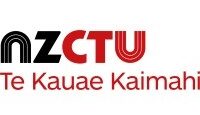
- New Zealand Council of Trade Unions
0800 486 466 Advocate Services Freephone
Legal representation and advocacy for yourself and your case against your company
Trade union Directory;
- Employment New Zealand Mediation Services
0800 20 90 20 Freephone
www.employment.govt.nz
Harassment information;
- Home > Resolving problems > Types of problems > Bullying, harassment and discrimination
- Mediation Information;
https://www.employment.govt.nz/resolving-problems/steps-to-resolve/mediation/
- MBIE’s Employment Mediation Services is a free and confidential service to help employers or employees resolve employment relationship problems including sexual harassment allegations.
- Employment Relations Authority
0800 20 90 20 Freephone
www.era.govt.nz
If you are not happy with how your employer has handled your Personal Grievance complaint, you can then place a complaint with the Employment Relations Authority. See the below form link to fill out and send to them.
Application and lodging a complaint process link;
https://www.era.govt.nz/resolution-process/lodge-your-application
Contacting Authority offices:
In Auckland, email aucklandera@era.govt.nz
Auckland : 09 970 1550
In Wellington, email wellingtonera@era.govt.nz
Wellington: 04 915 9550
In Christchurch, email christchurchera@era.govt.nz
Christchurch: 03 964 7850
The Employment Relations Authority can resolve disputes about employment issues including sexual harassment if mediation has failed to resolve your complaint.
Like the Employment Relations Authority, the Employment Court deals with cases about employment disputes. The Employment Court also deals with challenges to Employment Relations Authority decisions. (Legislation: Employment Relations Act 2000 (ERA).)The ERA aims to build productive employment (employer/employee) relationships. It provides protection against sexual and racial harassment, which are also covered by the HRA. So sexual and racial harassment can give grounds for a personal grievance under the ERA or a claim under the HRA – the employee decides which of these options to take.As the Employment Relations Act is only relevant for employer/employee relationship problems, independent contractors should direct their complaints to the Human Rights Commission.
- Human Rights Commission
0800 496 877 Freephone
www.hrc.co.nz
TXT: 0210 236 4253
Infoline@hrc.co.nz (general enquiries)
How to make a complaint info:
https://tikatangata.org.nz/resources-and-support/make-a-complaint
The Human Rights Commission can help resolve complaints of sexual harassment and other forms of unlawful discrimination at work, at school, by people providing public services and other areas. It provides a free confidential mediation process for complaints of sexual harassment. It can provide information to help you to resolve your complaint or you could be referred to a mediator. Mediators help both parties work through the issues raised in a complaint. If mediation is unsuccessful, the Human Rights Review Tribunal can deal with human rights complaints (legal action).Legislation: The Human Rights Act 1993 (HRA).As the Employment Relations Act is only relevant for employer/employee relationship problems, independent contractors should direct their complaints to the Human Rights Commission.
- Police – Victims Support Services
This service will refer the caller to their recommended sexual assault service group. * See below for Waikato recommended group
0800 842 846 24 hr Contact Service Freephone
hamilton@victimsupport.org.nz
https://victimsupport.org.nz/get-help/your-help-lines
Reporting and disclosure of your situation.
* Midlands Sexual Assault Services 0800 839 4433
https://www.healthpoint.co.nz/social-services/sexual-harm/midlands-sexual-assault-support-services/
referral@msass.org.nz

- New Zealand Police
Find Police stations by map local Police station.
Call 105 Police Non Emergency
https://www.police.govt.nz/105info

- Eclipse
Debbs Murray
022 140 8185
https://www.eclipsefamilyviolenceservices.co.nz/
enquiries@eclipsefamilyviolenceservices.co.nz
- Worksafe NZ
0800 030 040 ( 24hours) Freephone
www.worksafe.govt.nz
WorkSafe New Zealand is the primary work health and safety regulator Legislation: The Health and Safety at Work Act 2015 (HSWA). HSWA is the primary work health and safety legislation.
To raise health and safety concerns go to:
https://www.worksafe.govt.nz/notifications/health-or-safety-concern
(* Not all concerns and notifications will meet WorkSafe’s threshold for initiating a response.)
- Work Law Ltd
0800 669 466 Freephone
www.nowinnofee.co.nz
Employment law advocates - No win no fee.
- Community Law
https://communitylaw.org.nz
Free legal help throughout New Zealand
- Citizens Advice Bureau
0800 367 222 Freephone
www.cab.org.nz
Helping people to know and understand their rights. Support group information lists.
- NetSafe
0508 638 723 Freephone
www.netsafe.org.nz
New Zealand’s online safety organisation - It assists with complaints about harmful digital communications.
- ACC
0800 101 906
www.acc.co.nz
Improving New Zealanders quality of life. Prevention. Care. Recovery.
- Safe to Talk He pai ki te korero
0800 044 334 Freephone
Free text 4334
https://safetotalk.nz
We offer free confidential contact with trained specialists in sexual harm. Connecting you to further support services in your community.
- Find Support
https://www.findsupport.co.nz/
If you've experienced sexual abuse or assault, use our online search tool to see the organisations that have therapists who can support you. This therapy is a free service, funded by ACC.
- Lifeline
24/7 Helpline |0800 LIFELINE (0800 54 33 54) or free text HELP (4357)
www.lifeline.org.nz
Free, confidential crisis support services Sometimes it helps to know that someone is listening and that you don’t have to face your problems alone. Whatever the issue, Lifeline’s qualified counsellors and trained volunteers are here for you 24/7. Calls and texts are free and confidential.

Safer homes in New Zealand everyday
Call: 0508 744 633
https://www.2shine.org.nz/
- Healthline
Healthline lists avenues for support on their pages along with resources and campaigns to support New Zealanders to manage wellbeing. All services listed are available 24 hours a day, seven days a week unless otherwise specified.
https://mentalhealth.org.nz/helplines
Avenues of support
0800 611 116 Freephone
https://www.health.govt.nz/your-health/services-and-support/health-care-services/healthline/more-about-healthline
- TOAH - NNEST - National Network Ending Sexual Violence Together
+64 4 385 9176
0800 88 33 00 Freephone Nationwide
https://toah-nnest.org.nz
office@toah-nnest.org.nz
- Local GP (For non -urgent support and advice)

- Womens Refuge
Call our free Crisisline on 0800 REFUGE or 0800 733 843
https://womensrefuge.org.nz/
Email: info@refuge.org.nz


